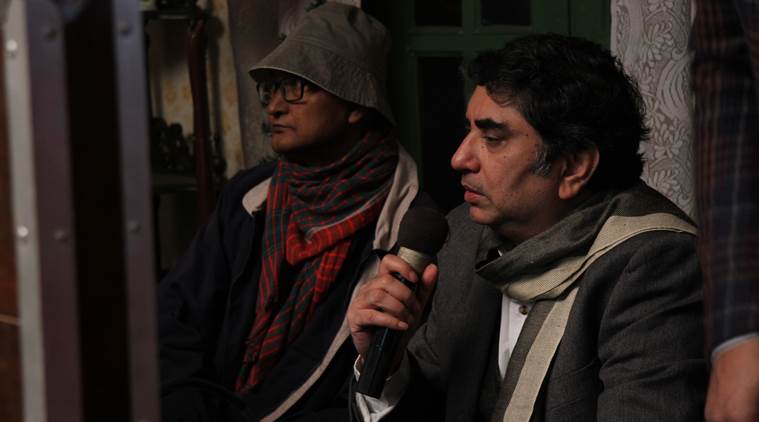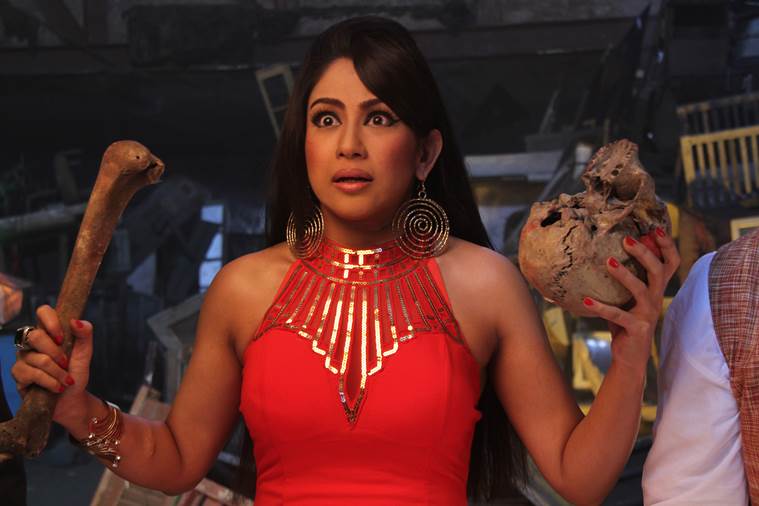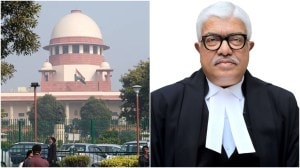Ghosts of politics present: Anik Dutta on Bhooter Bhabishyat, Bhobishyoter Bhoot and the future
As Anik Dutta awaits his latest movie Bhobishyoter Bhoot’s return to Kolkata theatres, he talks about his most political work yet.
 Cinematic liberties: Anik Dutta.
Cinematic liberties: Anik Dutta.
On February 16, a day after its release, Anik Dutta’s comedy Bhobishyoter Bhoot (Ghosts of the Future) was unceremoniously removed from Kolkata theatres. The movie satirises a range of socio-political issues such as the state of media, cow politics and right-wing ideologies, besides taking digs at the West Bengal government. Responding to the producers’ plea that the Mamata Banerjee-led government had imposed an unofficial ban on it, the Supreme Court, on March 15, ordered that the film’s screening be ensured “without any obstruction”. The movie soon returned to big screens in some smaller towns, but not in Kolkata. A second ruling from the apex court, on March 25, pulled up the state authorities, directing them to not obstruct the screening of the film since the Central Board of Film Certification (CBFC) has already cleared it for public viewing.
In this interview, the 58-year-old writer-director talks about about his long struggle to make the film as well as the fight to exhibit it in Kolkata. Excerpts:
Were no official explanations given to you for the cancellation of your film’s shows in Kolkata?
The exhibitors cancelled the shows without any intimation or reason. There were houseful shows whose ticket prices were refunded. So, it must have been a huge loss for them, too. We initially found out about the shows being cancelled through social media. We also got reports of minor scuffles between the viewers and exhibitors. At one point, ‘technical glitch’ was cited as the reason. When I went to South City Inox with actor Kaushik Sen to enquire, the reasons cited were vague and then they said there were instructions from ‘higher authorities’. However, no specific name or contact detail was given, even though we kept asking. On March 5, our Noida-based producers, Kalyanmoy Chatterjee and Indira Unninayar, filed a petition against this in the Supreme Court.
What led to the making of this movie?
For most of my life, I have been apolitical. Much later, I realised there is no such thing as ‘being apolitical’. That’s also a political stand. Then, I started getting involved and getting affected by the political developments in the country as well as abroad.
I thought what’s happening around us should be shown in my movie. My earlier movies have had different layers. The political statements were not so apparent. My first movie (Bhooter Bhabishyat, 2012) was a satire. The second movie (Aschorjyo Prodeep, 2013) was dark and talked about consumerism while the third one (Meghnad Badh Rahasya, 2017) was a thriller which delved into our political history.
Afterwards, I felt the need to spell out things as directly as possible.
There were rumours that the trouble begin when you started making the movie last year.
The trouble came in a roundabout way. There were objections to Bhobishyoter Bhoot on that ground that it was a sequel to Bhooter Bhabishyat and that I had written off my right to a sequel. Bhobishyoter Bhoot, however, is not a sequel and just happens to have characters who are ghosts.
However, there was a probable reason for the harassment that I faced. Soon after, Bhooter Bhabishyat’s release and its freakish success in 2012, I started getting feelers from the newly-elected state government. A ruling government usually wishes to co-opt all those who are relevant. I refused all those overtures, and that didn’t go down well. During Bhobishyoter Bhoot’s shoot, we faced legal problems as an injunction was brought in by producer Shree Venkatesh Films claiming that Bhooter Bhabishyat is a sequel. This was quashed later on. There was also trouble from some film federations, which are controlled by people from the ruling party, as well as indirect threats.
Many assumed that your comment at the Kolkata International Film Festival 2018, in which you suggested that the West Bengal chief minister’s photographs were everywhere, led to this trouble. When I made that innocent statement — or, maybe, not so innocent statement —there was a cheer among the crowd. That showed the resentment that was bottled up. That got these people worried.
Did you face any trouble when the film was submitted for certification at the Central Board of Film Certification ?
No, and we got a UA certificate. We had submitted the movie for censorship at the Kolkata office of the CBFC. Since the producers are from Noida, it was certified by the Delhi office. There were digs at the right-wing politics. I didn’t criticise governments, but what they stand for. I have not taken the name of any political parties, though there are oblique references.
Why did you decide to make this film overtly political ?
I was feeling too claustrophobic. Even though there were couple of other ideas, I thought doing them at present would be pointless. After ideation, which I do by myself, I wrote the script in collaboration with Utsav Mukherjee in late 2017 and the shoot started in early 2018. I believe that even if a film is not overtly political, it should have some reference to the period it’s set in. That’s not happening today.
Has the culture of making political films changed in West Bengal?
Bengali movies today are avoiding any political reference. Earlier, there was often one section of movies that made political statements. Even commercial cinema often borrowed from literature and was content-driven. While Mrinal Sen and Ritwik Ghatak are known for making political movies, Satyajit Ray made Hirak Rajar Deshe (1980), considered to be one of the greatest political satires. Today, any reference to what’s happening in Bengal has been obliterated from movies even though there are occasional mentions of some right-wing elements.
 Stills from his latest film, Bhobishyoter Bhoot.
Stills from his latest film, Bhobishyoter Bhoot.
Why did you go back to using ghost characters, like you did in Bhooter Bhabishyat?
I knew if I have to get past the censors, then I have to resort to satire without naming names. I didn’t have the money for computer graphics, so I couldn’t use animals. I toyed with the idea of using mythological characters, but that would have triggered another kind of controversy. So, I decided to return to my safe zone and to a fresh set of ghosts. What made it necessary for me to go back to ghosts was that I wanted characters from different periods and linguistic backgrounds.
What will be your next project?
Right now, many producers would be scared to put money in my project. Most of the movies I have made are original screenplays, barring Aschorjyo Prodeep (based on Shirshendu Mukhopadhyay’s novel). I have bought the rights of a book by author Ramapada Chowdhury and titled the movie, Barunbabur Bondhu. I don’t want to share the name of the original novel as I don’t want people to read it before watching the film as there is a twist in it.
Its first edit is done and we will start dubbing very soon.



- 01
- 02
- 03
- 04
- 05




























